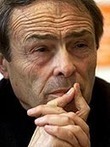
Pierre Bourdieu 1986.
Source: Knowledge Policy, proofed/corrected this html version (1) by comparing it with a .pdf image of the article from a book found at: The Eltan Burgos School of Economics.
First published: Bourdieu, P. (1986) The forms of capital. In J. Richardson (Ed.) Handbook of Theory and Research for the Sociology of Education (New York, Greenwood), 241-258.
Originally: in “Ökonomisches Kapital, kulturelles Kapital, soziales Kapital.” in Soziale Ungleichheiten (Soziale Welt, Sonderheft 2), edited by Reinhard Kreckel. Goettingen: Otto Schartz & Co.. 1983. pp. 183-98. The article appears here for the first time in English. Translated by Richard Nice.
The social world is accumulated history, and if it is not to be reduced to a discontinuous series of instantaneous mechanical equilibria between agents who are treated as interchangeable particles, one must reintroduce into it the notion of capital and with it, accumulation and all its effects. Capital is accumulated labor (in its materialized form or its ‘incorporated,’ embodied form) which, when appropriated on a private, i.e., exclusive, basis by agents or groups of agents, enables them to appropriate social energy in the form of reified or living labor. It is a vis insita, a force inscribed in objective or subjective structures, but it is also a lex insita, the principle underlying the immanent regularities of the social world. It is what makes the games of society – not least, the economic game – something other than simple games of chance offering at every moment the possibility of a miracle. Roulette, which holds out the opportunity of winning a lot of money in a short space of time, and therefore of changing one’s social status quasi-instantaneously, and in which the winning of the previous spin of the wheel can be staked and lost at every new spin, gives a fairly accurate image of this imaginary universe of perfect competition or perfect equality of opportunity, a world without inertia, without accumulation, without heredity or acquired properties, in which every moment is perfectly independent of the previous one, every soldier has a marshal’s baton in his knapsack, and every prize can be attained, instantaneously, by everyone, so that at each moment anyone can become anything. Capital, which, in its objectified or embodied forms, takes time to accumulate and which, as a potential capacity to produce profits and to reproduce itself in identical or expanded form, contains a tendency to persist in its being, is a force inscribed in the objectivity of things so that everything is not equally possible or impossible.[1] And the structure of the distribution of the different types and subtypes of capital at a given moment in time represents the immanent structure of the social world, i.e. , the set of constraints, inscribed in the very reality of that world, which govern its functioning in a durable way, determining the chances of success for practices.
It is in fact impossible to account for the structure and functioning of the social world unless one reintroduces capital in all its forms and not solely in the one form recognized by economic theory. Economic theory has allowed to be foisted upon it a definition of the economy of practices which is the historical invention of capitalism; and by reducing the universe of exchanges to mercantile exchange, which is objectively and subjectively oriented toward the maximization of profit, i.e., (economically) self-interested, it has implicitly defined the other forms of exchange as noneconomic, and therefore disinterested. In particular, it defines as disinterested those forms of exchange which ensure the transubstantiation whereby the most material types of capital – those which are economic in the restricted sense – can present themselves in the immaterial form of cultural capital or social capital and vice versa. Interest, in the restricted sense it is given in economic theory, cannot be produced without producing its negative counterpart, disinterestedness. The class of practices whose explicit purpose is to maximize monetary profit cannot be defined as such without producing the purposeless finality of cultural or artistic practices and their products; the world of bourgeois man, with his double-entry accounting, cannot be invented without producing the pure, perfect universe of the artist and the intellectual and the gratuitous activities of art-for-art’s sake and pure theory. In other words, the constitution of a science of mercantile relationships which, inasmuch as it takes for granted the very foundations of the order it claims to analyze – private property, profit, wage labor, etc. – is not even a science of the field of economic production, has prevented the constitution of a general science of the economy of practices, which would treat mercantile exchange as a particular case of exchange in all its forms.
http://www.scoop.it/t/knowledge-economy/p/1981785890/the-forms-of-capital-by-pierre-bourdieu-1986/original The Forms of Capital by Pierre Bourdieu 1986





0 comments:
Post a Comment